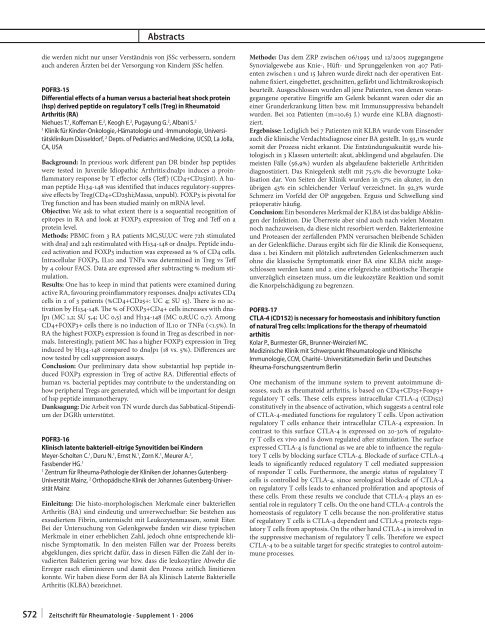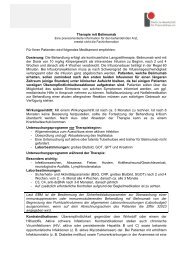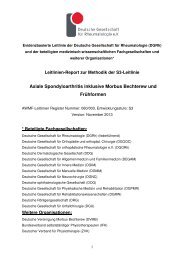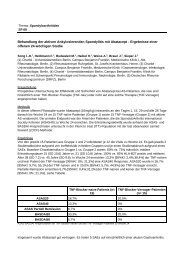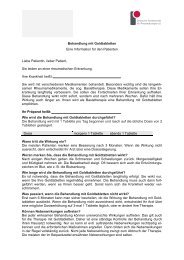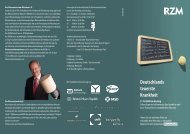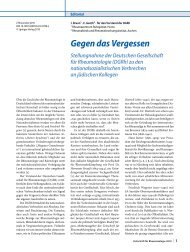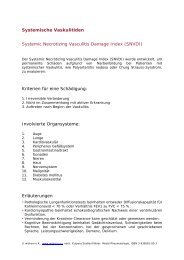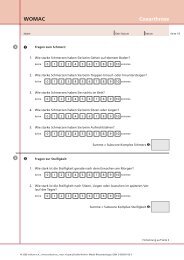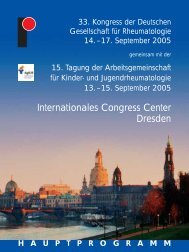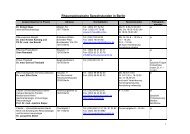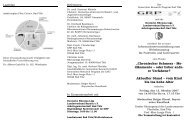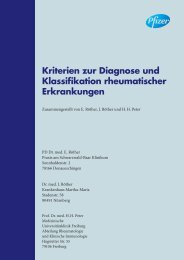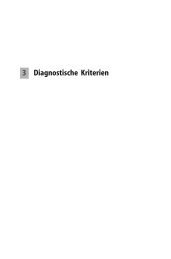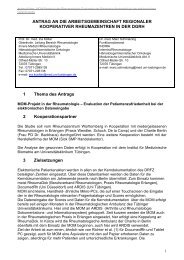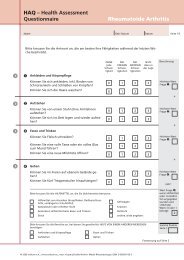Zeitschrift für Rheumatologie – Supplement 1 - Deutsche ...
Zeitschrift für Rheumatologie – Supplement 1 - Deutsche ...
Zeitschrift für Rheumatologie – Supplement 1 - Deutsche ...
Sie wollen auch ein ePaper? Erhöhen Sie die Reichweite Ihrer Titel.
YUMPU macht aus Druck-PDFs automatisch weboptimierte ePaper, die Google liebt.
S72<br />
Abstracts<br />
die werden nicht nur unser Verständnis von jSSc verbessern, sondern<br />
auch anderen Ärzten bei der Versorgung von Kindern jSSc helfen.<br />
POFR3-15<br />
Diff erential eff ects of a human versus a bacterial heat shock protein<br />
(hsp) derived peptide on regulatory T cells (Treg) in Rheumatoid<br />
Arthritis (RA)<br />
Niehues T. 1 , Koff eman E. 2 , Keogh E. 2 , Pugayung G. 2 , Albani S. 2<br />
1 Klinik <strong>für</strong> Kinder-Onkologie,-Hämatologie und -Immunologie, Universitätsklinikum<br />
Düsseldorf, 2 Depts. of Pediatrics and Medicine, UCSD, La Jolla,<br />
CA, USA<br />
Background: In previous work diff erent pan DR binder hsp peptides<br />
were tested in Juvenile Idiopathic Arthritis:dnaJp1 induces a proinfl<br />
ammatory response by T eff ector cells (Teff ) (CD4+CD25int). A human<br />
peptide H134-148 was identifi ed that induces regulatory-suppressive<br />
eff ects by Treg(CD4+CD25hi;Massa, unpubl). FOXP3 is pivotal for<br />
Treg function and has been studied mainly on mRNA level.<br />
Objective: We ask to what extent there is a sequential recognition of<br />
epitopes in RA and look at FOXP3 expression of Treg and Teff on a<br />
protein level.<br />
Methods: PBMC from 3 RA patients MC,SU,UC were 72h stimulated<br />
with dnaJ and 24h restimulated with H134-148 or dnaJp1. Peptide induced<br />
activation and FOXP3 induction was expressed as % of CD4 cells.<br />
Intracellular FOXP3, IL10 and TNFa was determined in Treg vs Teff<br />
by 4 colour FACS. Data are expressed aft er subtracting % medium stimulation.<br />
Results: One has to keep in mind that patients were examined during<br />
active RA, favouring proinfl ammatory responses. dnaJp1 activates CD4<br />
cells in 2 of 3 patients (%CD4+CD25+: UC 4; SU 15). Th ere is no activation<br />
by H134-148. Th e % of FOXP3+CD4+ cells increases with dna-<br />
Jp1 (MC 1,2; SU 5,4; UC 0,5) and H134-148 (MC 0,8;UC 0,7). Among<br />
CD4+FOXP3+ cells there is no induction of IL10 or TNFa (


